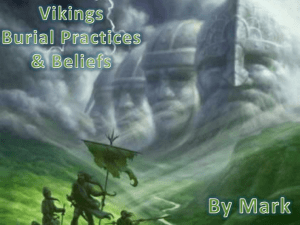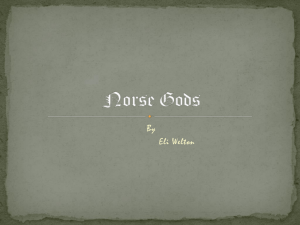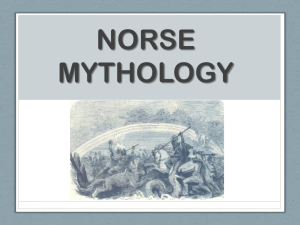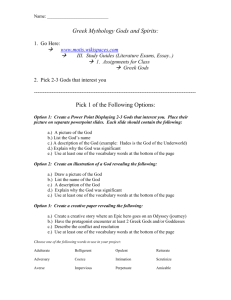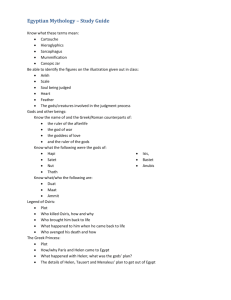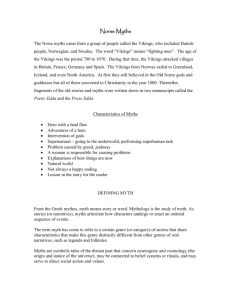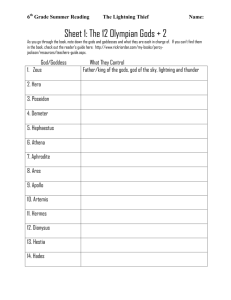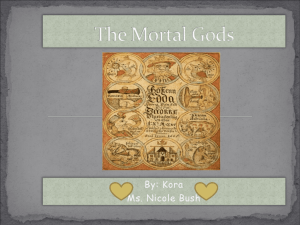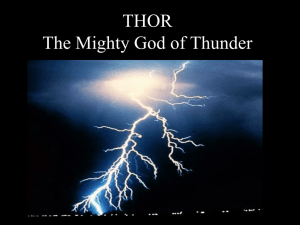Medieval History
advertisement
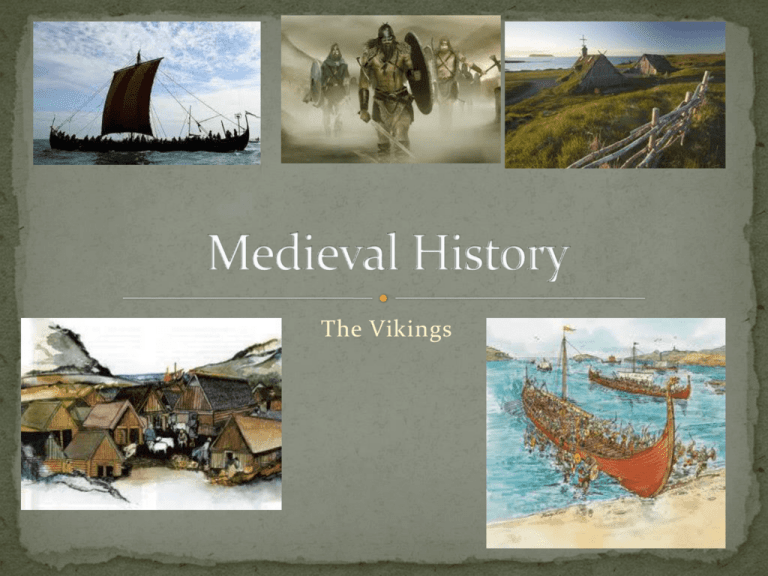
The Vikings Celts Romans Saxons Vikings Normans Tudors Victorians WW ll 500 BC AD 43 450 793 1066 1485 1837 1939 Toward the end of the 8th century CE, Viking seafarers from what we now call Norway (A), Denmark (B), and Sweden (C) embarked on a series of daring voyages for trade, colonization, and sometimes even plunder. Over the next 250 years, they planted settlements in Europe — from the British Isles (D) and France (E) to Italy (F) and Russia (G). Vikings from Norway, in particular, became the first Europeans, ever, to establish a passage across the Atlantic to North America. They did it in stages, setting up bases, as they went, in the Shetland Islands (H), Faroe Islands (I), Iceland (J), Greenland (K), and — for just a few years — in the place they called Vinland (L). berserker draught • Warrior gangs that attached themselves to courts as bodyguards and shock troops • The depth of water the longships needed to float fjord • Inlet of the sea saga • A long poem that tells of a hero and his adventures Valhalla • The hall of the warriors in heaven Valkyrie • Warrior goddesses • the life force, lightning, strength, thunder & thunder storms Thor • fertility, prophecy, sex, sexuality (feminine), war, wealth & weather Freya • god of death, knowledge, poetry, rune magic, travel, war, warriors, & wisdom Odin Important Asar gods • Odin (also called Woden) – chief of gods, god of battle who ruled Asgard, home of the gods. He is shown as a mysterious one-eyed god • Tyr – god of war • Balder – Odin’s son, god of youth, beauty and goodness • Loki – a troublemaker (Balder and Loki were not friends) Important Vanir gods • Mimir – wisest of the Asar, sent as a hostage to the Vanir but was killed • Niord – ruler of wind and god of seafaring • Frey – son of Niord, god of fertility who gave good crops and ensured the survival of the race • Freyja – the daughter who was always attended by cats Tuesday Wednesday • Tyr’s day • Named after Tyr, god of war • Woden’s Day • Named after Woden (Odin), chief of gods Thursday • Thor’s day • Named after Thor, god of thunder Friday • Frey’s day • Named after Frey, god of fertility The Vikings made sacrifices to the gods, especially during the three main festivals: Vertarblot • Mid-October, when sacrifices were made to ensure a good Winter Jolablot or Midsvetrarblot • Mid-January when sacrifices were made to ensure good crops • Sacrifices were always made to Frey Sigrblot • In April when sacrifices were made for victories at war At these festivals people ate horsemeat and drank bowls of wine. Sometimes animals given to the gods were not killed, but were dedicated to the god and the owner could still use the animal. • Constantinople (Istanbul), Russia, Greenland, Baltic area • Traded in silk, spices, slaves, amber, weapons, glass • Founded trading cities in Scandinavia, Ireland and England (York) • Trade was peaceful • France, England and elsewhere • Landed, raided, destroyed and looted along the coastlines • Established settlements in Iceland and Greenland • Discovered North America (Vinland) • Established some peaceful settlements or colonies in England, France and Finland. Trade Raids Colonisation
